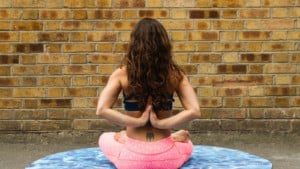You have definitely heard about meditation and how to meditate. It is a very popular skill, yet one that most people have no idea how to harness. Most of us don’t even know where to start and how to meditate. Well, if you have been looking to learn this life transforming skill, this comprehensive guide will help make the process smooth. Meditation is a simple skill but one that will transform your life by enhancing a deeper understanding of yourself, help you relax and develop your natural potential. There are quite a handful of different meditation techniques which might be challenging to apply if you only have a little knowledge of meditation. You will need to learn the basics of meditation first. This article contains the basic meditation tips for beginners and addresses common problems along the learning process.
Here’s how to meditate:
Beginning your Meditation Practice
If you have never meditated, you probably don’t even know how long you should meditate. There isn’t a time limit to meditation. However, I’d recommend some meditation tips by starting slowly with just 5 minutes every day. Five minutes will initially feel like an eternity, but after a week or so, you’ll be surprised at how quickly 30 minutes pass while meditating.
The perfect place and posture for meditation
It is really important in meditation to find a peaceful place and a comfortable spot where you can sit and relax. You can relax anywhere you feel comfortable; upright on the chair, or on a pillow on the floor. There is no specific spot or posture specifically needed for a successful meditation session. However, the ideal posture is one that is upright but not tight and rigid or one that embodies dignity and wakefulness as Jon Kabat-Zinn would put it. It is also recommended that you keep the natural curve of your back (no slouching). Make sure to rest your legs on the ground if you are sitting on a chair to ease your muscles and enhance concentration. Do not force yourself into the popular lotus position if you are not used to it.
You can also meditate anywhere, but an ideal place would be a special room in your house that is peaceful, well ventilated and, if possible, well lit. It could be in the house or outdoors. Whichever spot is most comfortable for you is the best spot for your meditation practice.
What to do
The best meditation technique to begin with is counting your breaths. Softly close your eyes and direct your unfocused gaze downwards. Do not force your breaths; let them come naturally. Breathe in through your nose and out through your mouth, counting each breathe and trying not to stray your mind from your breaths. As you move air into your lungs with each breath, they will gradually become fuller and deeper. Take as long as you need to breathe slowly and deeply.
You mind is bound to wander once in a while. The key is to guide the attention to your breathing. Counting your breaths could help you keep your attention on the breathing, but if from time to time you stray and forget your count, it is totally normal. Do not get frustrated; just keep at it. Noticing that your mind is wandering off the practice is actually a good sign that you are already becoming more aware of yourself. As you breathe, try and find your anchor; that point in your body you can concentrate on where you notice the sensation of your breath best. This will help you focus better and easily bring your mind back to the sensation of breathing any time it wanders.
How to fit meditation in your schedule
Whether it is in the morning after your breakfast or during a lunch break, find the time of night or day that you are most comfortable with. I would recommend mornings or evenings when you are not too busy and don’t have interruptions. It crucial to make this exercise a habit and an integral exercise in your day. Research says that you need about 66 days to make anything a routine.
Conclusion
You will definitely find your own unique way on how to meditate; your best spot, posture, etc. The important thing is to not bring any expectations to the exercise or you will end up being frustrated along the way. Meditation is about attaining non-judgemental awareness. As you continue to gain focus, it will become much easier and embed itself in your schedule.
Meditation will bring you closer to embracing the present moment. As you go on doing your practice, you might experience moments of profound insights in your sessions. Slowly, you will attain greater self-control, self-awareness and increased empathy and calm. I’d presume these are your goals in learning how to meditate.













 Community
Community

